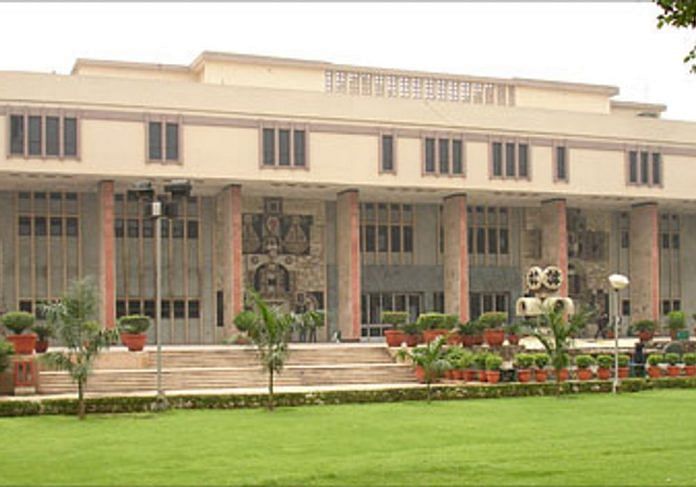Delhi High Court issues notice to Centre after NCLT member Vijai Pratap Singh seeks pay parity with juniors.
New Delhi: In what is possibly the first of its kind case since the National Democratic Alliance (NDA) government changed the rules governing service conditions, including salary and perks, of members of various quasi-judicial tribunals, a member (judicial) of the National Company Law Tribunal (NCLT) has approached the Delhi High Court seeking parity in pay with his juniors.
After hearing the counsel for petitioner Vijai Pratap Singh, who was appointed member of the NCLT on 2 June, 2016, the Delhi High Court Wednesday issued a notice to the Central government and other respondents.
In his petition, Singh said while he was placed in the pay-scale of Rs 67,000-79,000 drawing a basic salary amounting to Rs 74,910, members who were appointed after him were receiving a basic salary of Rs 79,000 as they have been placed in the grade of Rs 80,000.
Singh is ranked seventh in terms of seniority in NCLT.
He has also said there has been no change in his pay structure even after he pointed out this discrepancy to the government.
“The Supreme Court has held that a senior would be entitled to stepping up if he is performing the same duties and there is unavailability of any special circumstances,”
advocate Mayuri Raghuvanshi, who represents Singh, told ThePrint.
Also read: Hiring and retiring stuck at consumer body as confusion reigns over selection rules
Turbulence over new rules
Singh’s case is not unique.
Ever since the Finance Ministry brought in new rules — cleared in the Finance Bill, 2017, which granted better pay-scales to the new members of various tribunals — resentment has been brewing among members appointed before the rules were changed since their salary and perks are now lower than those granted to their juniors.
Until the bill changed the service conditions of members of the various tribunals, the pay-scale of members ranged between Rs 2,05,600 and Rs 2,24,400. Under the revised rules, the salary of members was revised to Rs 2,25,000. However, since the rules didn’t specify whether or not they would apply to existing members, their salaries remained unchanged.
In what is perhaps the most striking anomaly in the new rules, they enable new members, hired after the bill was introduced, to have a higher pay grade and by extension seniority than older, more experienced members.
‘Frustration among existing members’
Members of two tribunals — the Income Tax Appellate Tribunal (ITAT) and the Custom Excise and Service Tax Appellate Tribunal (CESAT) — have already voiced their frustration with the new rules.
Nine new members, appointed between March and April have joined the tribunal at a higher pay scale, said a member of the CESAT who did not wish to be named.
The higher pay scale for new members means they will have seniority in conducting the bench which decides on cases, instead of older members, something that is unprecedented.
“It’s not possible in a government set-up. We have some members who have put in 20 years of service and they are in the low pay scale,” said an income tax tribunal member on condition of anonymity.
“For 20 years a person is performing the same function and that too as a senior who is conducting the bench, he cannot have a lower pay scale.”
Members of both CESAT and ITAT have also made representations to the government on this issue but haven’t received any response so far.
“The newly-recruited member (junior) will get more salary than the existing member (senior). In other words, the junior will get more salary than his senior. Due to this anomaly there will be frustration among existing members,” read the representation made by CESAT to the Finance Ministry last year.
After receiving no response from the government, CESAT took up the matter with the Central Administrative Tribunal (CAT), which directed the government to furnish a reply on the matter.



